The Max Perutz Fund was set up in 1980 in honour of Max Perutz, co-founder of the LMB.
The charity incorporates several funds available to support work in the LMB. This includes donations in honour of LMB scientists Fred Sanger and César Milstein, and donations for specific purposes. The following funds are held within the Max Perutz Fund:
Perutz Fund
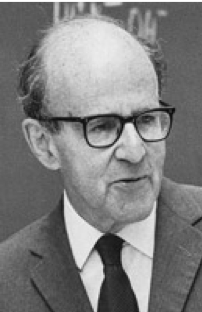
Max Perutz joined J. D. Bernal’s crystallographic lab at the Cavendish Laboratory, Cambridge, in 1936, as a graduate student from Vienna. From 1947, his research was funded by the MRC when they established a ‘Research Unit for the Study of the Molecular Structure of Biological Systems’ for which Max and his co-worker John Kendrew were founders. Together, they pioneered the technique of protein crystallography, leading to the elucidation of the first protein structures: myoglobin (John) and haemoglobin (Max). They were jointly awarded the 1962 Nobel Prize for Chemistry. In the same year, the LMB opened and, as well as being founder and the first Chairman, Max continued his research on protein structures. He retired as Chairman in 1979.
This Fund is used for the annual LMB Student Prizes awarded to promising graduate students who have completed an outstanding piece of research within four years of starting their PhD studies. It is also used for other approved purposes such as attendance at major overseas scientific conferences by students and young scientists within the LMB.
Milstein Fund
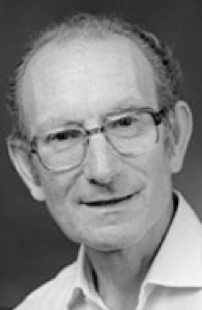
César Milstein was born in Argentina in 1927. After completing PhD’s in both Buenos Aires and Cambridge, and a brief spell of research back in Argentina, he joined the LMB in 1963 and spent the rest of his life here. He developed an early interest in immunology, and at the LMB his research concentrated on antibody structure and diversity. In the early 1970s, with his post-doc Georges Köhler, they developed the technique to produce monoclonal antibodies, for which they were jointly awarded the 1984 Nobel Prize in Physiology and Medicine. This technique has been used for diagnostics and developed further by LMB colleagues for therapeutic applications, leading to the creation of several MRC spin-out companies. César continued his research on how somatic mutation arises in immunoglobulin genes. He died in Cambridge in March 2002.
This Fund is used to support a Studentship or a Fellowship to enable a young scientist from South America to undertake research at the LMB.
Geoffrey Grigg Traveling Fellowship
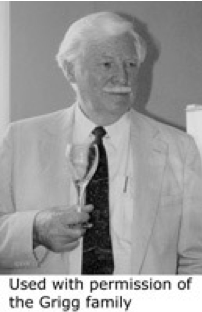
Geoffrey Grigg was an Australian visitor to the LMB with Fred Sanger in 1972-1974 and Greg Winter in 1988, and often visited the LMB, especially in the 1990s. He played a key role in the founding and/or financing of Cambridge Antibody Technology and Domantis, two start-up biotechnology companies based on work originating in the LMB. After his death in 2008, the LMB and the Garvan Institute in Sydney set up a traveling Fellowship to honour his memory, raising money from his friends in Cambridge and Sydney.
The aim of the Fellowship is to expedite short (one to three month) scientific exchange visits between the two institutions to promote closer links between them.
Prospective applicants from the LMB should apply to the Director of the LMB by email to mfpfund@mrc-lmb.cam.ac.uk at least one month in advance of the proposed trip, and preferably longer. The application should include a brief description (one page) of the proposed project or collaboration, a breakdown of the estimated costs, and notes from their Group Leader and the Garvan host signifying approval. If the application is successful, the Max Perutz Fund will pay some or all of the estimated travel and accommodation costs from funds earmarked for this purpose. Applicants from the Garvan should apply to the Director of the Garvan Institute.
Neuberger Studentship Fund
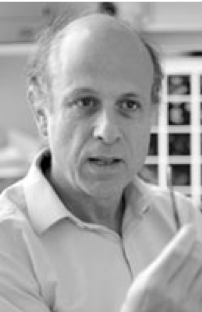
Michael Neuberger was Deputy Director of the LMB and Head of the PNAC Division. Michael died in October 2013, after several months of serious illness. He was a truly outstanding scientist who worked out the mechanism of somatic hypermutation, which underpins the amazing diversity of antibodies the immune system can generate to combat pathogens and disease. The Max Perutz Fund has honoured his memory by establishing a named PhD studentship based at the LMB in collaboration with Trinity College, Cambridge, for training in fundamental biological and medical research.
In order to be able eventually to establish a rolling studentship in Michael’s memory, it will take substantial funds so we would be very grateful if you would consider donating to this fund.
Joan A. Steitz Postdoc Prize
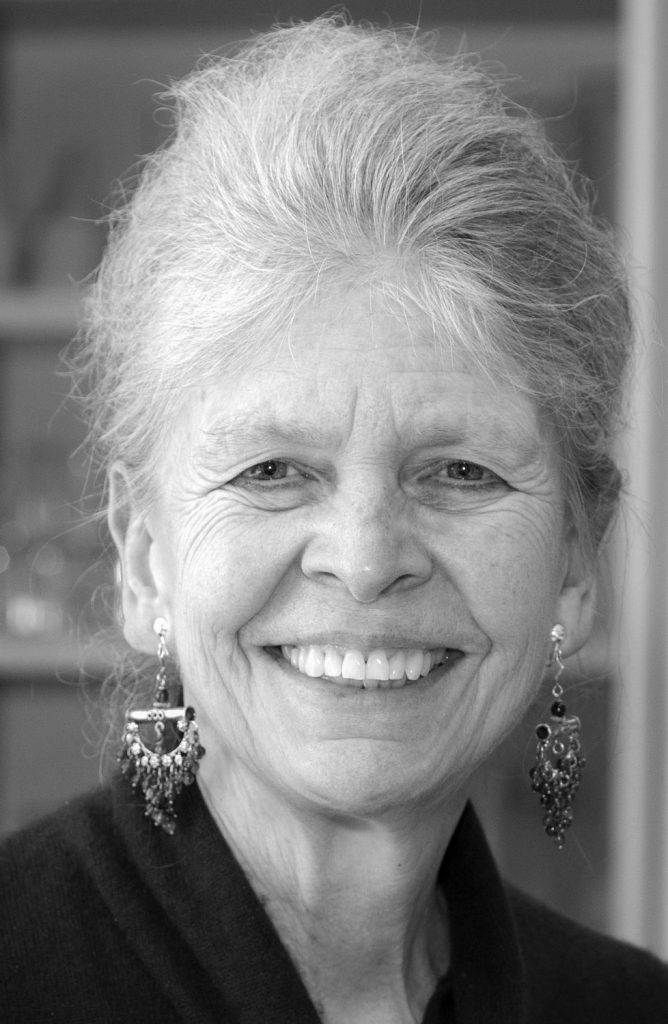
Joan joined the LMB in 1967 as a postdoc in the Division of Molecular Genetics. She worked mostly with Mark Bretscher who gave her some bench space and lots of advice. Her time at the LMB culminated in her obtaining the first sequences of ribosome binding sites comprising the beginnings of the genes for the three proteins encoded by the RNA bacteriophage R17.
After her postdoc, in 1970 she set up her own lab at Yale University studying RNA biology where she is now Sterling Professor of Molecular Biophysics and Biochemistry. Some highlights of her work are the initial discovery and characterisation of snRNPs as building blocks of the spliceosome, identification of snoRNPs modifying rRNAs, and discovery and study of non-coding RNAs made by herpes viruses. Joan has received many awards for her research and has been a Member of the National Academy of Sciences since 1983, an Associate Member of EMBO since 1987 and a Fellow of the American Academy of Microbiology since 1992.
The annual Postdoc Prize for outstanding research was made possible by a generous donation from Royalty Pharma to support career development for exceptional postdocs.
AstraZeneca (formerly MedImmune) Lecture Series
Periodically the LMB hosts an “LMB Named Lecture”, given by eminent scientists from around the world. These LMB Named Lectures are advertised widely throughout the local area and are open to all. The Max Perutz Fund is grateful to AstraZeneca for providing funding for the lecture series. The lectures are held at the MRC’s Laboratory of Molecular Biology in Cambridge several times a year and are advertised on the LMB website.
General Fund
This Fund is used to fund travel grants and for other approved purposes such as the purchase of vital research equipment.
Responsible investment statement
The Max Perutz Fund aims to invest its funds responsibly and ethically. Our investment manager is tasked to implement a strong ethical policy and we therefore do not knowingly invest in tobacco or armaments, for example. They are signatories to the Financial Reporting Council Stewardship Code and actively engage with the companies in which they invest to drive improvements in practice.